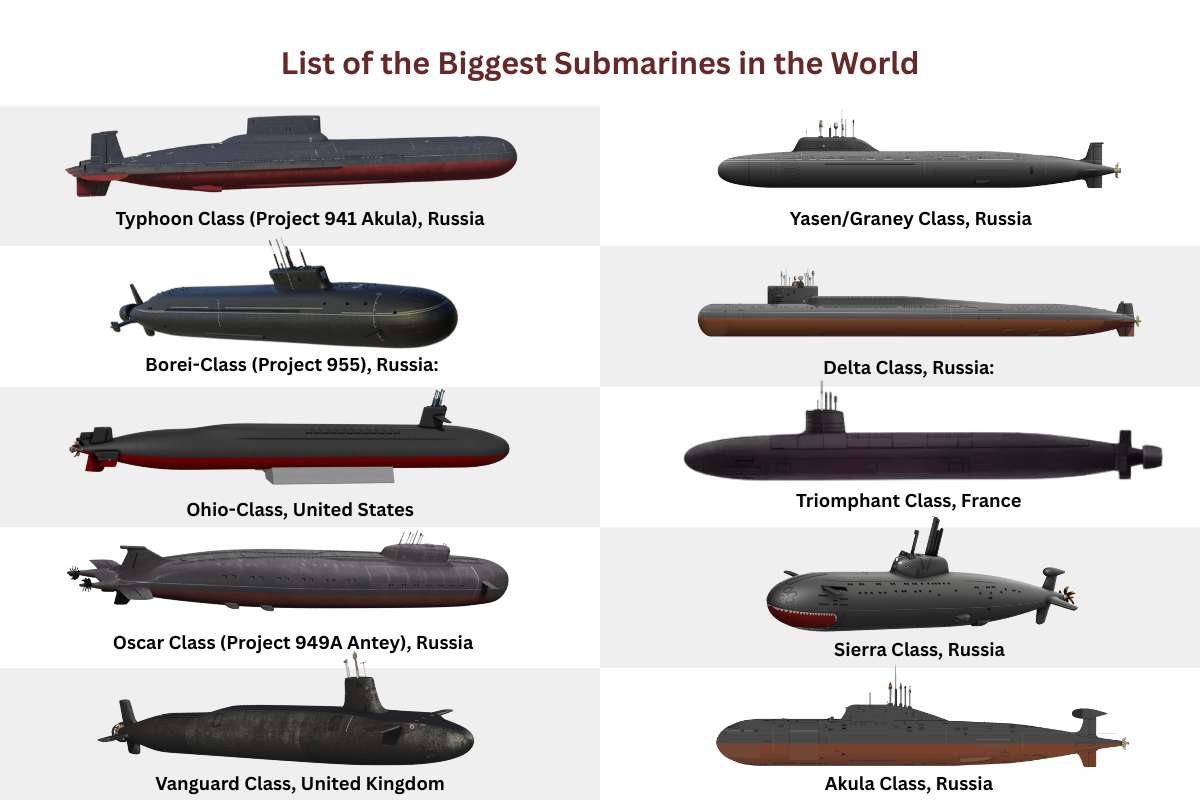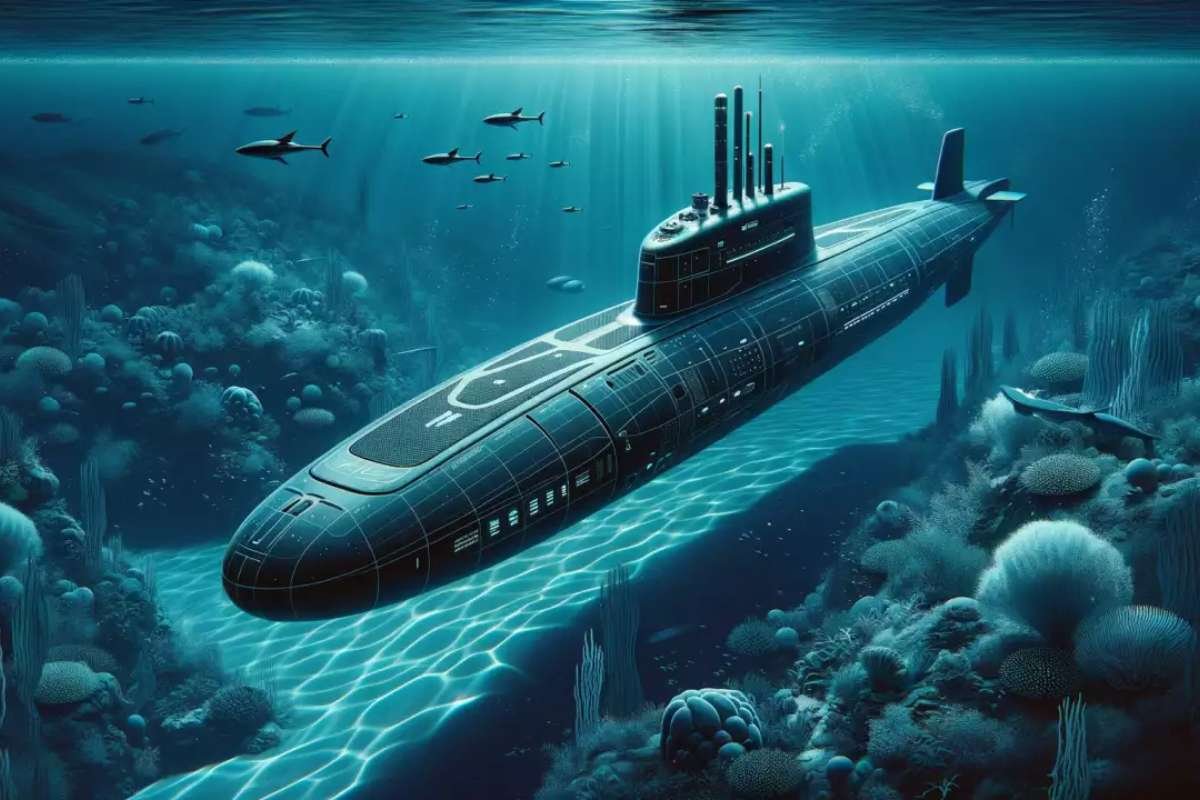I Bet You Didn’t Know About the Biggest Submarines in the World!
I Bet You Didn’t Know About the Biggest Submarines in the World!
Blog Article
I Bet You Didn’t Know About the Biggest Submarines in the World!

- Source: ssbcrackexams.com
Riddle me this, they move silently beneath the surface; bigger than some skyscrapers turned sideways, yet nearly invisible to the naked eye. Who are they? The biggest submarines in the world! These underwater giants are engineering marvels, capable of travelling thousands of miles without surfacing and carrying enough firepower to rival entire nations. But did you ever wonder what it takes to build a submarine the size of a football field? Who builds them, and what is the purpose behind them? These giant submarines are symbols of power, fear, and innovation.
From the Cold War-era behemoths that is designed to battle nuclear fallout, to the modern stealth machines silently patrolling the ocean floors, these vessels are more than just military hardware. So, let’s dive deeper to understand more about vast machines by entering their world, to uncover their massive scale, secretive missions, and the surprising technologies that keep them hidden in plain sight. In their world, the size is not just a matter of being intimidating, but it is a necessity for survival, strategy, and supremacy beneath the waves.
In this article, we will explore and list some of the biggest submarines in the world and understand how submarine technology is improving Life Science.
What Makes a Submarine the Biggest? Historical Evolution of Submarine Sizes
The size of a submarine is determined by several key factors, primarily its displacement, which is the weight of water it displaces when submerged. Larger displacement usually shows a bigger submarine in terms of length, beam (width), and draft (depth). A truly huge submarine also features a large crew capacity, extensive operational range, and the ability to carry a significant payload, including torpedoes, ballistic missiles, or even unmanned vehicles.
The nuclear power submarines are always at the top of the list in terms of bigger submarines, as they require larger reactors, extensive shielding, and storage for long-term missions without surfacing. Ultimately, a combination of displacement and physical dimensions like length and beam dictate a submarine’s overall size. These features make them the biggest submarines in the world.
Early submarines were small and experimental. Mechanically powered submarines in the late 19th and early 20th centuries remained relatively small, mainly for coastal defence. World War I saw a gradual increase in size for longer ranges. World War II brought larger and more sophisticated diesel-electric submarines. The Cold War and nuclear power led to massive submarines, especially ballistic missile submarines like the Typhoon class. Today’s nuclear submarines remain large because of advanced weaponry and endurance needs, with the Russian Belgorod currently being the longest.
List of the Biggest Submarines in the World:

1. Typhoon Class (Project 941 Akula), Russia
The largest submarines ever built, Typhoon-class vessels can displace over 48,000 tons submerged and carry 20 ballistic missiles. Their design, during the Cold War, was for long-term nuclear deterrence under Arctic ice.
2. Borei-Class (Project 955), Russia
Russia’s latest generation of strategic nuclear submarines, Borei-class subs, are quieter and more compact than Typhoons, but still powerful enough to carry 16 Bulava ballistic missiles.
3. Ohio-Class, United States
The backbone of the U.S. Navy’s nuclear deterrent, these massive submarines can carry up to 24 Trident II missiles and remain submerged for months. They have converted some into cruise missile (SSGN) variants.
4. Oscar Class (Project 949A Antey), Russia

5. Vanguard Class, United Kingdom
The UK’s nuclear deterrent force, Vanguard-class submarines, carry Trident II D5 missiles and serve as the silent guardians of Britain’s continuous-at-sea deterrence policy.
6. Yasen/Graney Class, Russia
People know the Yasen class, a newer class of nuclear-powered attack submarines, for its stealth, speed, versatility, and ability to launch cruise missiles and engage in anti-submarine warfare.
7. Delta Class, Russia
Once the workhorse of the Soviet/Russian nuclear submarine fleet, various Delta variants have carried intercontinental ballistic missiles since the 1970s, with some still in service today.
8. Triomphant Class, France
France’s nuclear ballistic missile submarines (SSBNs), these modern vessels carry M51 missiles and ensure France’s independent nuclear deterrent, with an emphasis on stealth and automation.
9. Sierra Class, Russia
Unique for their titanium hulls, Sierra-class submarines are durable and deep-diving attack subs that were built for high-speed, high-endurance missions during the Cold War.
10. Akula Class, Russia
A series of nuclear-powered attack submarines known for their balance of speed, armament, and improved stealth over previous Soviet designs. Western navies have long tracked them closely.
Future Prospects: Enhancing Life Science through Submarine Technology

Also Read: Explore the Underwater Rare and Beautiful Mexican Sea Creatures
Conclusion
The biggest submarines in the world are not just imposing military machines; they are an example of human dedication and the passion for underwater dominance. From Cold War-era submarines to today’s advanced nuclear-powered ones, these vessels show amazing engineering, strategic value, and surprising uses in life science. Their huge scale and secretive operations continue to capture our minds, reminding us of the hidden world beneath the waves and the remarkable technologies that allow us to explore and command it.
FAQ:
1. Which is the largest submarine in the world?
Considering the decommissioning of the last Typhoon-class submarine in 2023, the Belgorod is the world’s largest operational submarine. The Belgorod will reportedly be the first submarine to utilize the Status-6 Oceanic Multipurpose System.
2. Which country has the most powerful submarines?
The western superpower USA, has the largest nuclear-powered fleet worldwide. It has 66 nuclear submarines, more than half of its closest competitor. The United States submarine force includes four operational classes—Ohio, Los Angeles, Seawolf, and Virginia—all of which are equipped with nuclear energy.
3. What is the world’s largest passenger submarine?
Whale Submarine is the biggest passenger submarine in the world, operating in the Maldives.